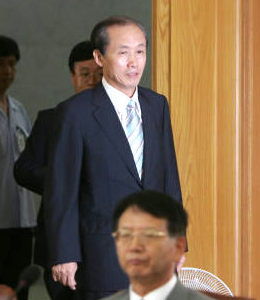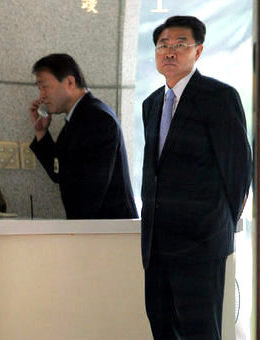 |
|
Supreme Court Chief Justice Lee Yong-hun
|
Top judge says interrogations should be ’thrown out’ of court
South Korea’s chief prosecutor has expressed dismay over remarks made by Supreme Court Chief Justice Lee Yong-hun, calling them inappropriate and disrespectful of the prosecution. In a visit to courthouses in Daejeon on September 19, Lee asked, "How could closed-door interrogation reports by prosecutors gain an upper hand on testimony given in the open court? If the court [system] takes shape appropriately, these interrogation reports should be thrown out." In response, Prosecutor General Choung Sang-myoung said in a statement on September 21, "I am disappointed in the chief justice’s remark, because it could be misread as meaning that he does not respect the function and role of the prosecution, which is in charge of human rights and legal matters under constitutional law." Though the chief prosecutor’s reaction was triggered by Lee’s remarks, the root of his ire involves a recent shift in ideology toward a more fully trial-based system in South Korea. Lee’s remarks brought to the surface an internal power struggle between the prosecution and the top court regarding to what extent prosecutors’ interrogation results would be used as evidence in a court of law. The dispute began in earnest in May 2005, when a presidential committee for judicial reform revised criminal trial law so that a court could choose to reject interrogation reports by prosecutors at the request of the accused. However, the revision invited harsh opposition from prosecutors, prompting the committee to revise the proposal again. The revised proposal requires a court to accept interrogation reports as evidence when the reports are proven to have been acquired using fully legal procedures.
 |
|
Prosecutor General Choung Sang-myoung
|






